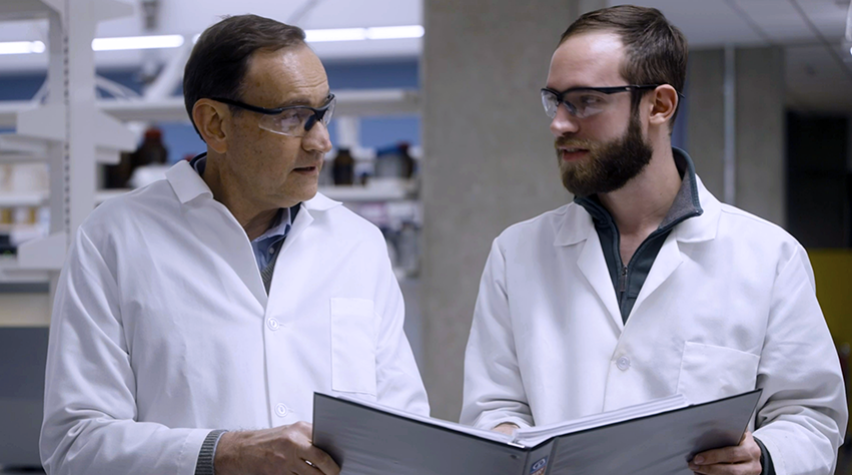
ChEnected is introducing readers to the recipients of AIChE’s 2024 Institute and Board of Directors’ Awards. These high honorees are nominated by the chemical engineering community and voted upon by the members of AIChE’s Awards Committee.
The R. H. Wilhelm Award for Chemical Reaction Engineering recognizes significant new contributions in that field, and is sponsored by ExxonMobil Research and Engineering Company.

The 2024 Wilhelm Award recipient is Dr. Fabio H. Ribeiro, the W. Nicholas and Elizabeth H. Delgass Distinguished Professor in Chemical Engineering at Purdue University. Dr. Ribeiro is being recognized “for pioneering designs and applications of chemical reactors and operando characterization tools to precisely describe kinetics and mechanisms of catalysts for energy conversion and pollution abatement.”
Dr. Ribeiro and the other Institute and Board of Directors’ Award honorees will receive their prizes at the 2024 AIChE Annual Meeting, October 27–31 in San Diego, California.
The energy transition is the challenge of our century, but it also offers opportunities to enhance global wellness, efficiency, and emissions reduction.
Reflections on the energy transition
Fabio Ribeiro is addresses the pressing challenge of the energy transition on several fronts, with his research distinguished by his expertise in chemical reaction kinetics and in situ and operando characterization tools.
At Purdue, he directs the National Science Foundation Engineering Research Center on Innovative and Strategic Transformation of Alkane Resources (CISTAR), and is co-director of the Purdue Engineering Initiative on Leading Energy-Transition Advances and Pathways to Sustainability (LEAPS). CISTAR is a collaboration involving five universities and 32 industry partners, focusing on transformative innovations in catalysis, separations, and process enhancements to responsibly harness U.S. shale gas potential and reduce carbon footprints. LEAPS is a college-wide initiative aimed at creating scalable technologies for the energy transition, transforming the nature of energy-focused learning, and accelerating the translation of these technologies through academic-industry synergies.
“Energy is fundamental to all we do, making it the primary economic activity driving today’s prosperity,” says Ribeiro, who notes that 80% of the world’s energy consumption relies on fossil fuels. “As we move toward an era where transitioning away from fossil fuels is critical, how can we harness the potential of new energy sources to meet future demands?” Ribeiro notes that while the existing energy infrastructure — developed over a century ago — has ensured affordability and reliability, the imperative placed on sustainability presents an unprecedented challenge to this transition.
“The energy transition is the challenge of our century, but it also offers opportunities to enhance global wellness, efficiency, and emissions reduction,” says Ribeiro. He adds that solutions will involve an array of strategies tailored to specific sectors and regions. “Chemical engineers are essential in this transition, providing the reactions and reactors needed to drive change,” he says.
Ribeiro enumerates opportunities for chemical engineers to contribute to the transition, including developing new catalysts with improved rates and selectivity to transform bio-renewable feedstocks into fuels and chemicals; creating processes with a negative carbon footprint; innovating reactor designs that activate reactions through non-thermal methods such as plasmas, electrons, and photons; and designing affordable carbon dioxide capture and sequestration methods.
Fabio Ribeiro’s research appears in more than 165 scholarly publications, and he has served as Editor of the Journal of Catalysis. A Fellow of AIChE, he has chaired the Institute’s Catalysis and Reaction Engineering Division. He is also a Fellow of Purdue’s Krach Institute for Tech Diplomacy and the American Association for the Advancement of Science.
This fall, ChEnected is presenting profiles of all the 2024 Institute and Board of Directors’ Award recipients. Visit ChEnected regularly to meet the honorees.


